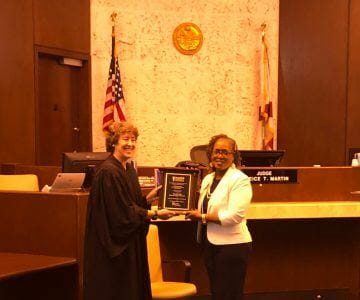
Planning Teens Summer Activities Can Prevent Mental Health and Substance Abuse Problems
Submitted by Christine Holmes, LMHC
Director of Substance Abuse and Specialty Services
David Lawrence Center
Parents should take an active, inquisitive and direct approach to adolescent summer activity. Teens have a lot more free time in the summer and how they fill that time can be a negotiation, but must also be clear about what is unacceptable. Too much free time and boredom can lead to depression, isolation, inappropriate sexual activity, alcohol and drug use and other illegal activities. Here are a few tips to help you and your teen manage their summer effectively:
- Plan your teen’s summer with them. Ask them what they would like to do and don’t except “nothing” as an answer. Encourage them to research the opportunities and then generate the final list together. This will help develop strong planning and problem solving skills.
- Break up long summer days. Consider enrolling them in camps or summer classes offered throughout the community. If that is cost prohibitive, keep teens busy by encouraging them to get a part time job, baby sit for a neighbor, volunteer or give them additional household responsibilities. These activities can also teach them responsibility.
- Set limits and expectations with your children. Set curfews and expectations and communicate regularly and often about the “house” rules. For example, when teens are bored, they often fill their time with TV and video games. Agree in advance how much time is okay to devote to these activities. Take action when rules are broken.
- Have clear rules that alcohol and drug use are unacceptable. The keys to raising a drug free child include understanding and communication. Look for teachable moments every day using examples, something you saw on TV, or stories they can relate to. If you need help on conversation starters, check the internet.
- Praise good behavior. Look for ways to let your child know they are doing a good job. Take the time to notice they took initiative, completed a chore or accomplished a goal and say good job.
- Know where they are. Teens who are not regularly monitored by their parents are four times more likely to use drugs. Check to see where your teen is, who they are with and what they are doing. Surprise them by checking up to make sure they are where they say they are. Monitoring your teen’s activities will help you keep them on the right path or get them back on the right track.
- Look for warning signs. If you think your teen is using drugs or up to something inappropriate, they probably are. Don’t ignore warning signs, be direct and ask.
- Stay involved in their activities. Talk to your teen’s coach, friend’s parents and employer. Offer to be the driver to activities. Showing you are interested will let them know you are engaged in their wellbeing and aware of their activities.
- Make sure to plan some family time. Teens who spend time with their family, openly communicate and have a close relationship with their parents are much less likely to engage in inappropriate, harmful and negative activities. When kids and parents are able to be more relaxed, without the pressures of homework assignments and hectic school year schedules, there is time to discover the sillier, more amusing sides of each other. Plan a vacation, have fun and enjoy each other over the summer while you have the time.
If you think your teen is struggling with a mental health or substance use problem, call the David Lawrence Centers at (239) 491-7602 to schedule an assessment.
Jul 01, 2009 | Substance Use



